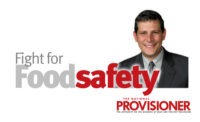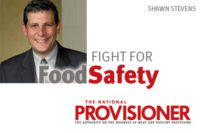Relying on a vast network of food safety surveillance capabilities, FSIS is identifying an increasing number of problems associated with meat and poultry products in commerce. These problems can vary wildly, ranging from the production of products under “unsanitary conditions” to producing products contaminated with Listeria, E. coliO157:H7 or antibiotic-resistant strains of Salmonella.
When the resulting recalls occur, most generic recall plans are woefully inadequate to guide a company through the wide range of challenges it will face. That’s why it’s critical for all companies to blow the dust off of their standard recall plan and ensure they have a world-class recall plan solidly in place.
What makes a plan “world-class?” At a minimum, the plan should outline the specific steps the company will take in conjunction with any recall to effectively limit and contain its regulatory and litigation exposure. What company employees do and say in the midst of a crisis can and will be used against the company in litigation or FSIS regulatory enforcement actions.
As a result, your plan should be comprehensive enough to help your company:
(1) effectively identify and contain implicated products;
(2) anticipate and handle recall questions from consumers and customers;
(3) expertly manage media relations and communications to better protect your brand;
(4) identify potential insurance coverage issues and protect against the denial of insurance claims;
(5) identify implicated source ingredients and provide notice of possible claims;
(6) source replacement ingredients from alternative suppliers without unnecessary delay;
(7) appropriately handle third-party consumer and commercial claims, as well as threatened litigation;
(8) coordinate internal communications within the protections of the attorney-client privilege to protect what you say from discovery or disclosure;
(9) understand and respond to evidentiary issues and pitfalls associated with recalled product; and
(10) immunize yourself to the greatest extent possible from broader regulatory and litigation exposure.
Once the plan is drafted, your company should also engage in sufficient training with a number of simulated high-profile outbreak scenarios so when a crisis does occur, the plan can be executed as designed.
So, will a “world-class” plan save your company? Yes, it will. When a crisis arrives, the plan will help you expertly navigate through the minefield forged by the recall, the ensuing regulatory enforcement actions and the resulting litigation, helping better protect your employees, your company and your brand.








Report Abusive Comment